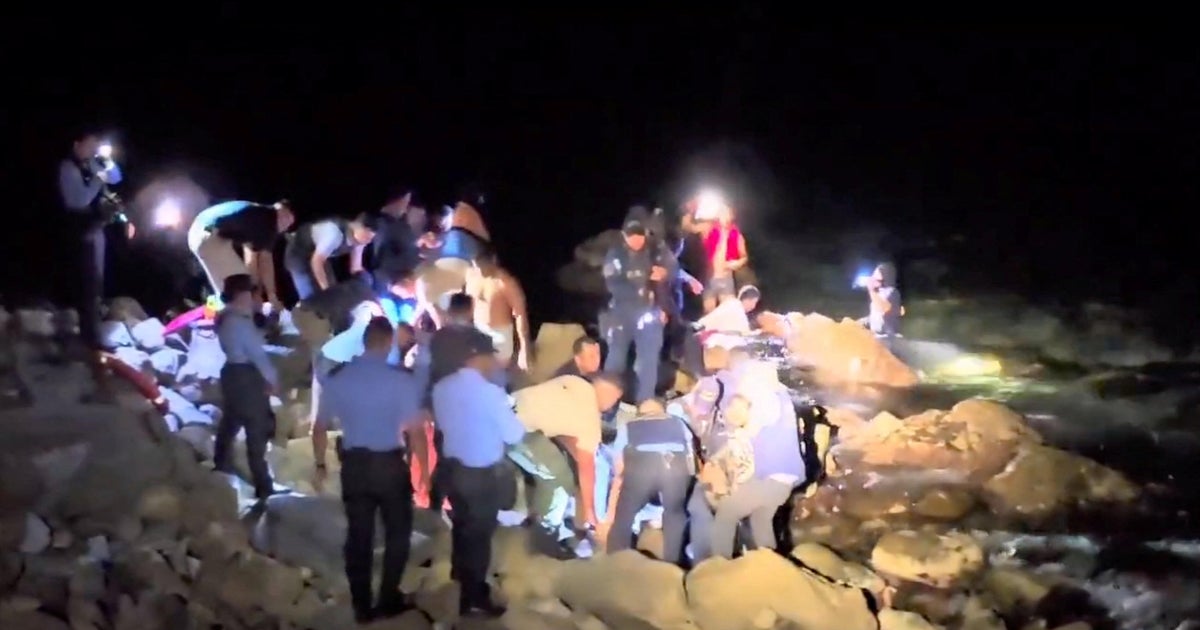BRITISH tourists could be in for a chilly welcome this summer, as multiple countries across the world are ramping up their overtourism efforts.
Over 20 of the world's top tourist spots have implemented tough new rules - from tourist taxes, a mandatory beach booking app to even a ban on swearing.
The first mass anti-tourist protests of the year kicked off in Spain after thousands of people across 40 cities took to the streets on Saturday.
Read below to see which countries have reached their 'breaking point' and are enforcing measures ahead of the holiday season.
In Spain, Malaga is scrapping plans to build 1,300 tourist homes and considering a total ban on land sales to foreigners in attempt to slash its "low-quality" tourism.
Spanish party isle Ibiza recently blocked access to a popular viewing point with boulders, with owners putting up a sign reading: “Private Property. Restricted Access.”
Read more on anti-tourism
Authorities in Ibiza have also implemented new regulations for cruise ships docking on the party island.
The regulations mean that no more than two cruises are allowed to dock at the same time, according to the Council of Mayors.
Activists in Spain have escalated their anti-tourist efforts by urging locals to vandalise key boxes outside rentals.
In an open letter in March, they urged holidaymakers to stay away from Spain.
The letter read: "ENOUGH! STAY HOME! We do not need more tourists; in fact, you are the source of our problem. DO NOT COME."
Last year, tourists in Majorca were booed and told to "go home", while those in Barcelona were targeted with water guns.
In Italy, tourists who want to visit Tuerredda, considered one of Sardinia's most beautiful beaches, will now need to book their spot beforehand via app.
Since 2022, the local Sardinian council has imposed unusual bans on the beach, including on disposable plastic bags, smoking and the removal of sand or pebbles from the beach.
Rome has also cracked down with strict measures, including limiting access to the Trevi Fountain and enforcing in-person check-ins for short-term rentals.
In popular Positano, tourists snapping selfies in crowded spots could each be hit with fines of 275 euros (£236).
Further north in Italy, day-trippers to Venice will be charged a €5 (£4.20) fee.
Authorities in Venice introduced all sorts of measures last year, including banning loudspeakers and tour groups of more than 25 people.
Large cruise ships have been barred from entering Venice's historic centre since 2021 after damage to the lagoon led to the city almost being placed on UNESCO's endangered list.
It comes after protesters in Rome, Florence and Milan sabotaged key lock boxes of holiday rentals last year.
As a result, the Italian government had to ban key lock boxes and other self-check-in systems.
In France, Marseille similarly announced a ban on key safes mounted outside holiday rentals in order to curb their growing number in the city.
Mayor Benoît Payan wrote on social media: “The people of Marseille can’t take it anymore and we’re taking action.
“Stop seasonal rentals invading Marseille!”
In Portugal's capital city of Lisbon, thousands of locals have signed a petition demanding a referendum to ban tourist apartments in residential buildings.
In Greece, daily limits have been put in place on cruise ship visits to islands like Santorini and Mykonos in attempt to curb overtourism.
Besides cruise ship restrictions, tourists travelling to islands by cruise also face a €20 (£16) fee during peak seasons.
Other Greek islands, like Sifnos and Milos, have halted hotel construction after courts flagged illegal roads and rampant building in undeveloped areas.
Visits to Athens' iconic Acropolis have been capped at 20,000 people per day since 2023.
In Croatia, the local Dubrovnik government has repeatedly put in place measures to lower tourist numbers.
A tax on cruise ships entering the Old City has also been introduced, with only 4,000 people from cruise ships able to enter at any one time.
In the Netherlands, stricter Airbnb rules have been imposed and the number of visitors at Amsterdam Airport Schiphol has been capped in the country's latest overtourism efforts.
In Austria, the picturesque town of Hallstatt has implemented measures like limiting tour buses and cars.
Locals even erected a provisional wooden fence in a bid to ward off visitors taking selfies with the landscape, though this was removed after backlash.
In Vienna, authorities have implemented regulations on the number of days short-term rentals can be rented out annually to tackle the housing crisis.
What is overtourism?

Overtourism refers to the phenomenon where a destination experiences a volume of tourists that exceeds its manageable capacity.
The term is often used to describe the negative consequences of mass tourism, which includes overcrowding and environmental issues.
As a result, popular destinations have become less enjoyable for both visitors and locals.
Local communities, in particular, bear the brunt, facing rising costs and a depletion of resources.
In response, national and local governments have started to implement measures to reduce overtourism.
Some solutions include:
- Safeguarding historical and heritage sites
- Promoting off-peak travel
- Tourism caps and regulations
- Promoting lesser-known destinations
An anti-tourist sentiment is on the rise across the world - not just in Europe.
In Indonesia, Bali has announced a raft of rules including a swearing ban - enforced by a police force dedicated to cracking down on troublemakers.
The new guidelines advise that foreign tourists “should observe and honour Balinese customs, traditions, and cultural practices, especially during ceremonies.”
They note tourists should also “dress appropriately when visiting temples, tourist attractions, or public spaces.”
Bali has further imposed a tourist tax of 150,000 IDR (under £8).
Thailand is similarly introducing a 300-baht (under £7) tourism tax, which will come into force as of May 1.
In Ecuador's Galapagos Islands, tourists are restricted to marked trails and must visit protected areas with a certified guide to help preserve this natural treasure.
Since August 2024, tourists at the Galapagos must pay an increased entry tax of $200 (£155).
In the Philippines, Boracay island reopened after a six-month shutdown to address sewage problems caused by overtourism.
Since its re-opening, Boracay has set a limit on daily tourist arrivals, a ban on single-use plastics and stricter waste management practices.


















 English (US) ·
English (US) ·